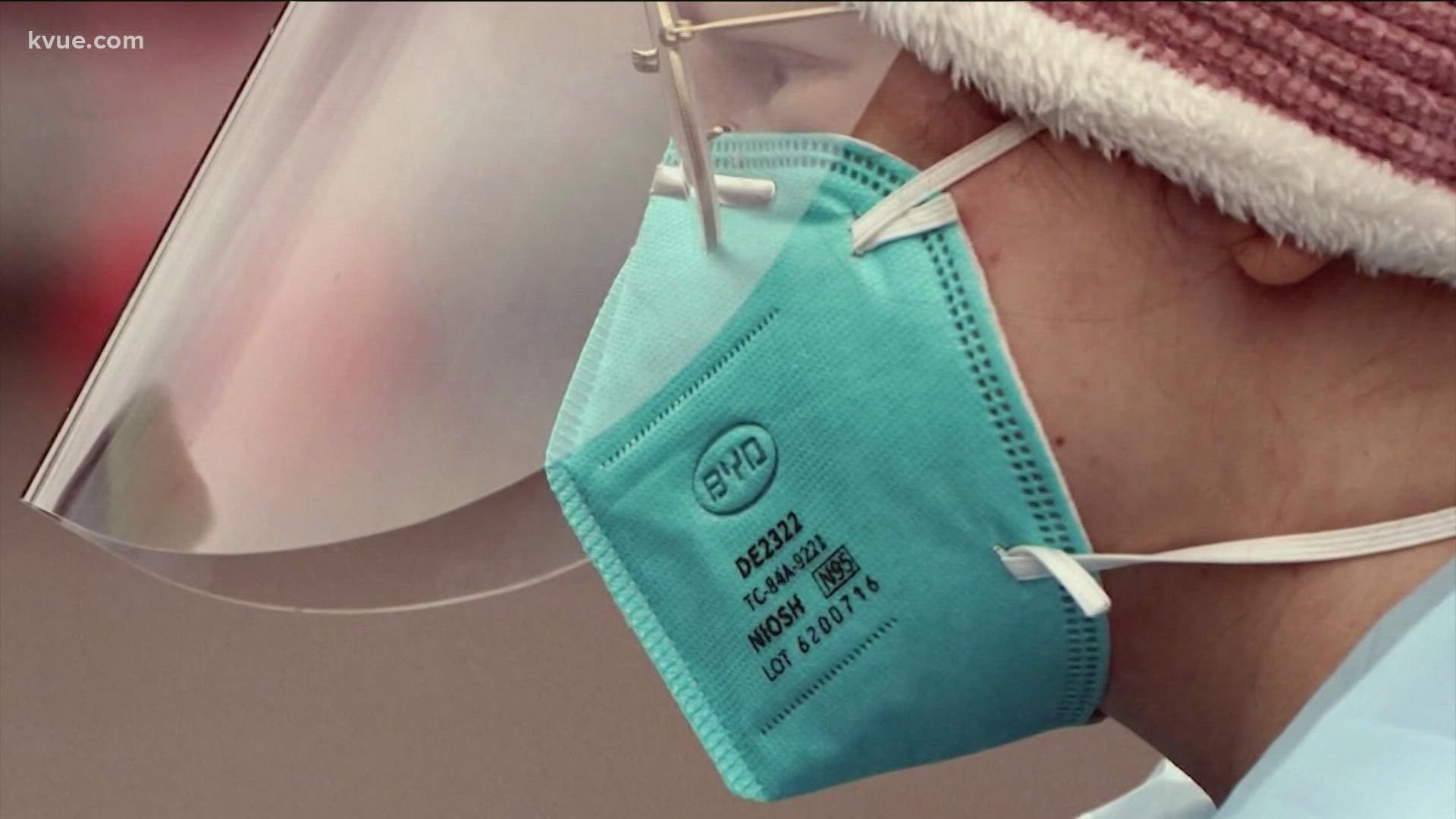AUSTIN, Texas — An epidemiologist with the University of Texas at Austin Dell Medical School is encouraging people to switch out cloth masks for a "high quality" mask to stay protected against the highly-contagious omicron variant.
In a video explaining the differences between types of masks, Dr. Elizabeth Matsui said cloth masks were effective when the pandemic started in 2020, but is encouraging the use of high-quality masks now that they are more widely available and the rise of highly transmissible COVID-19 variant.
Instead of cloth masks, Matsui said N95 or KN95 masks are the best options for protection. The head straps on these masks help ensure the mask fights snug on the face, closing any gaps that could allow unfiltered air in. Masks with ear loops are still effective in filtering the air, but Matsui said they could still have gaps that decrease their effectiveness.
"If you yourself wear an N95 of an N95-like mask, you are going to be highly protected even if you enter a public indoor space where someone is infected," she said.
The higher-grade masks are better at keeping the virus out of the wearer's nose, mouth and lungs, but also better at preventing the virus from escaping if the user is infected.
"The masks work as source control, meaning that if you're infected and you may not realize it, because you can be infected and not have symptoms, you're exhaling virus into the air. And wearing a mask traps those viral particles in the mask so that they don't get out into the air of, for example, the room that you're in," she said.
Surgical masks are still a better than cloth masks, but are not as effective as N95 masks, she said. In using a surgical mask, Matsui recommends getting ones with a higher quality stamp, which refers to how they filter out particles.
Although higher-quality masks are now available, Matsui urged caution when buying masks as some could be counterfeit.
RELATED: Counterfeit masks still a problem as doctors renew push for mask-wearing during omicron spike
The Centers for Disease Control and Prevention shared tips for identifying masks that could be fake yet marked as approved by the federal organization that regulates N95 respirators, the National Institute for Occupational Safety and Health (NIOSH).
Here are signs that a respirator may be counterfeit:
- No markings at all on the filtering facepiece respirator
- No approval (TC) number on filtering facepiece respirator or headband
- No NIOSH markings
- NIOSH spelled incorrectly
- Presence of decorative fabric or other decorative add-ons (e.g., sequins)
- Claims for the of approval for children (NIOSH does not approve any type of respiratory protection for children)
- Filtering facepiece respirator has ear loops instead of headbands
Dr. Matsui said using a high quality masks makes a "tremendous difference" in staying safe from COVID-19.
"The most important thing is that, wear a high quality mask," she said. "They're incredibly effective at preventing you from inhaling viral particles or being exposed to viruses if you're in an indoor space with other people. But they also protect those around you if you don't realize you're infected and you've gone out and about. These make a tremendous, tremendous difference."
PEOPLE ARE ALSO READING:

